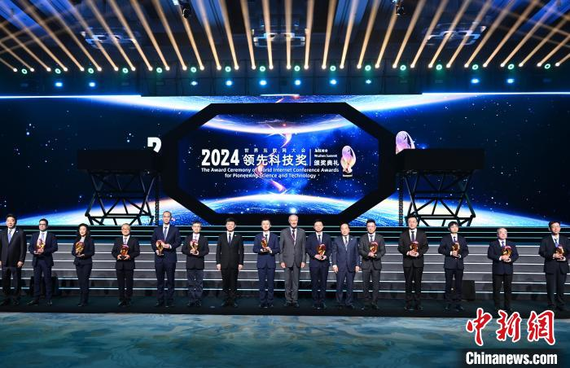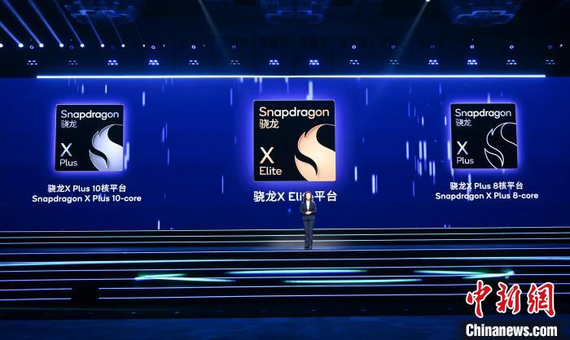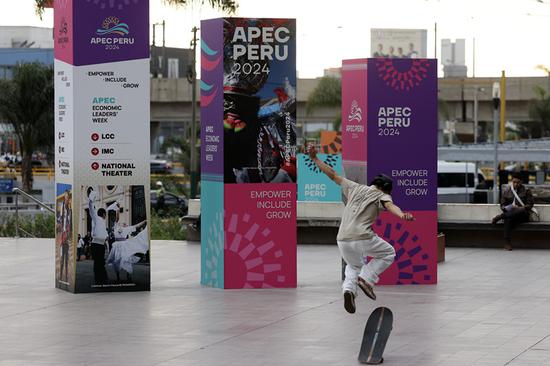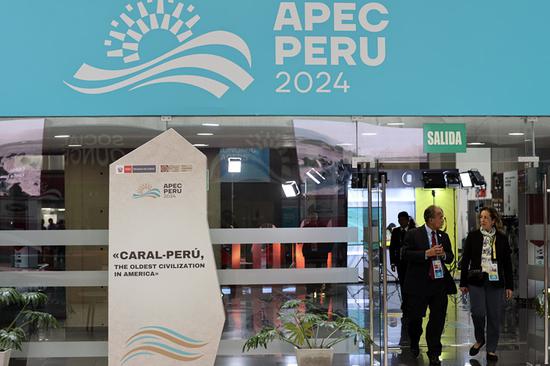(ECNS) -- The latest winners of the WIC awards for pioneering science and technology were announced during the sideline event of the 2024 World Internet Conference (WIC) Wuzhen Summit, which kicked off in east China's Zhejiang Province, on Tuesday.

The 20 award-winning and internationally competitive projects cover cutting-edge areas such as brain-inspired computing, embodied intelligence, 6G network, big data and high-performance chips. Among them, three focus on basic research, nine on key technologies, and eight on engineering research and development.
As 5G enters the stage of large-scale commercialization, 6G has gradually become the focus of global sci-tech innovation.

The “ACE-6G: AI Communication Empowered Semantic Platform for 6G” project is co-developed by Beijing University of Posts and Telecommunications and Pengchen Laboratory. It aims to tackle challenges in 6G communications technology.
According to Xu Xiaodong, a professor at Beijing University of Posts and Telecommunications and a researcher at Pengcheng Laboratory, semantic communications technology for 6G holds the potential to overcome transmission bottlenecks in traditional communications systems, providing innovative solutions for high spectral efficiency and reliable transmission.
With the theme "Embracing a People-centered and AI-for-good Digital Future", this year’s summit focuses comprehensively on cutting-edge concepts, technologies, and applications in artificial intelligence.
AI has already become deeply integrated into every aspect of our daily lives, with this year’s awards featuring a large number of AI-driven projects.

Qualcomm introduced its AI PC platform - Snapdragon X Elite, for more intelligent and personalized user experience. It is the exclusive platform supporting the first batch of Windows 11 AI PCs.
Besides, Shenzhen-based UBTech launched key technologies for embodied intelligence in humanoid robots, which are expected to be the next industry focus following computers, smartphones, and new energy vehicles.
This year’s award has gained widespread attention from the global internet community, with 270 valid submissions from 24 countries and regions.


















































 京公网安备 11010202009201号
京公网安备 11010202009201号